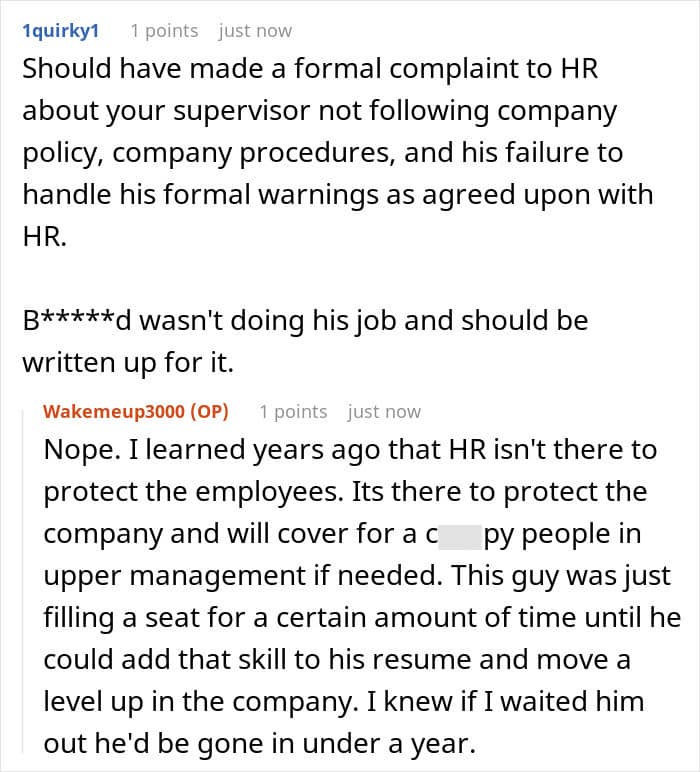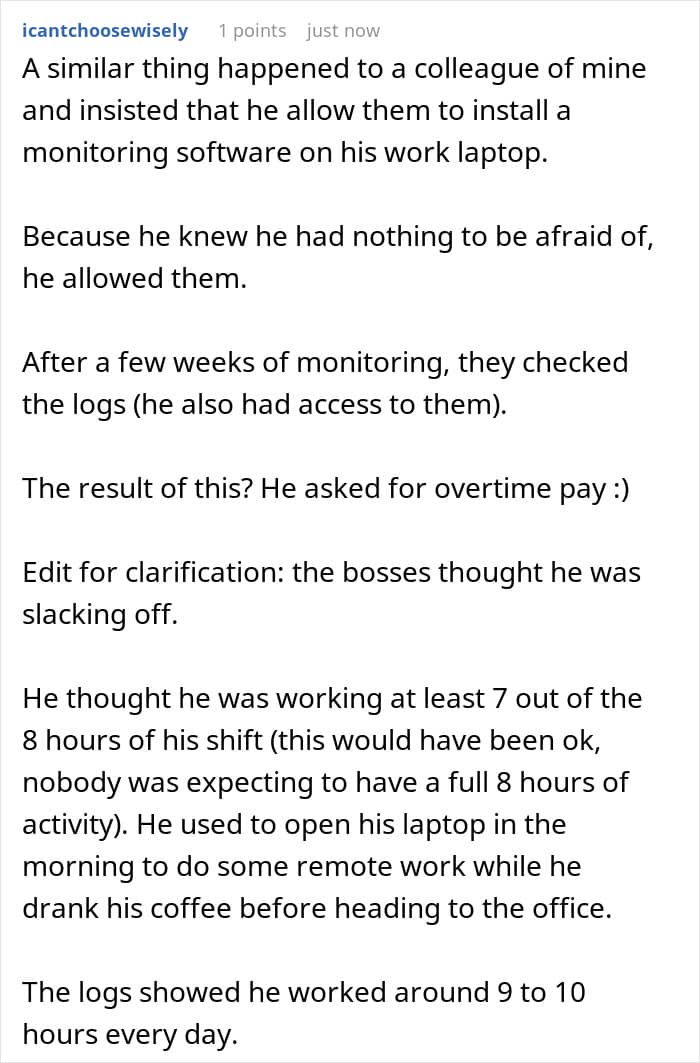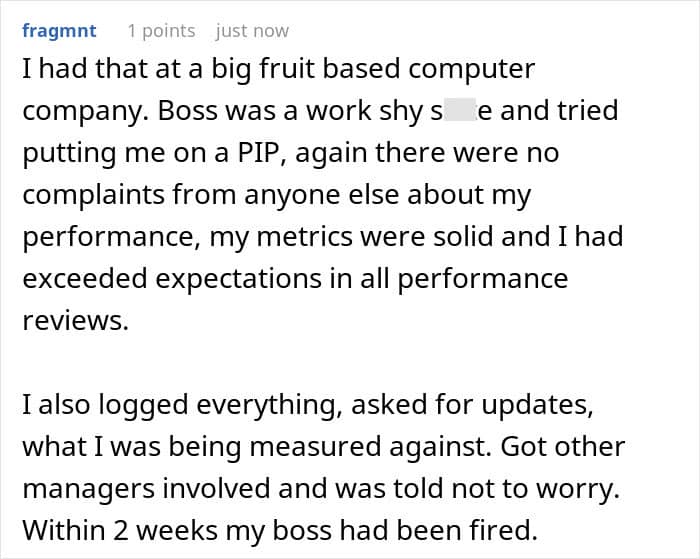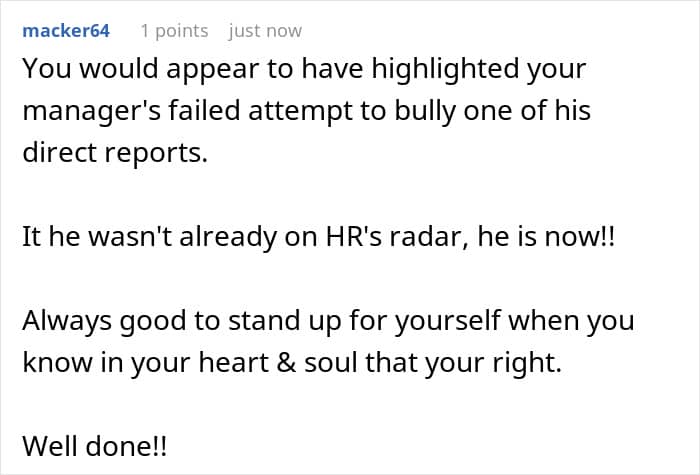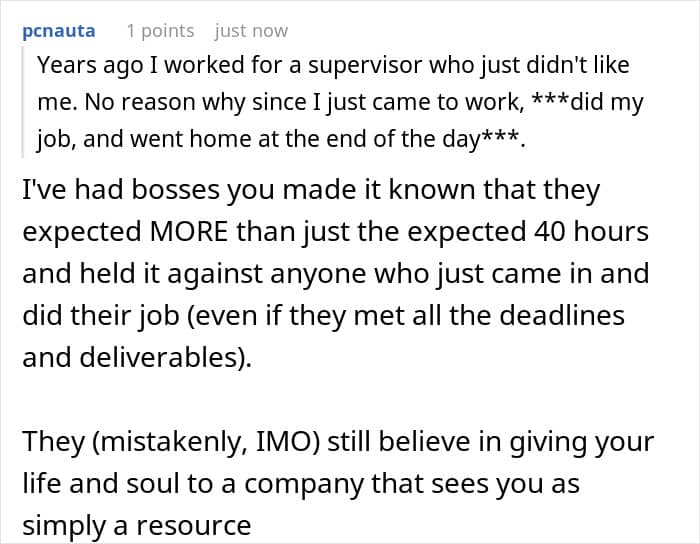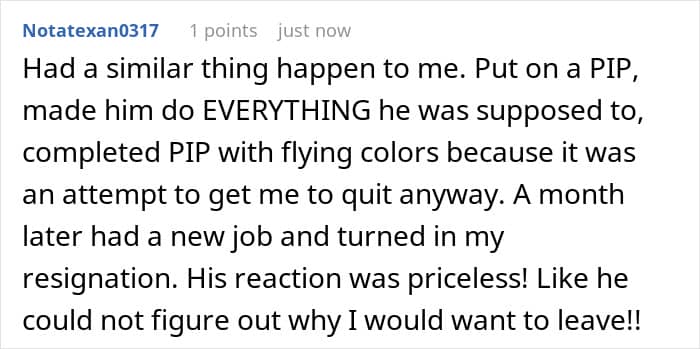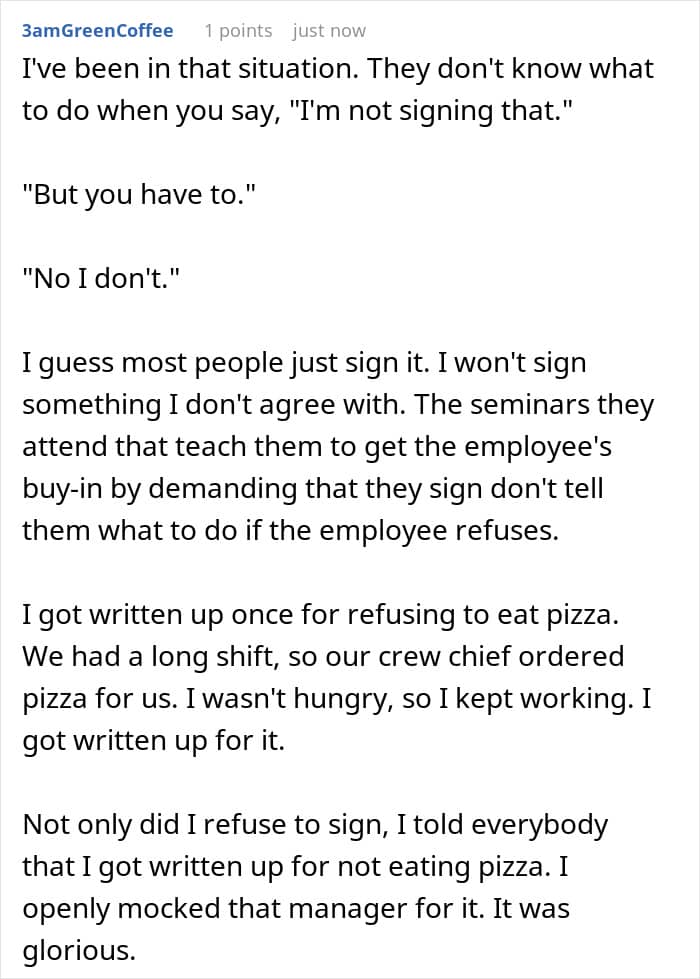Some people get to play power games at work, while others just come armed with receipts. Now, imagine being the unfortunate soul who tried to performance manage someone armed with logic, data, and apparently the patience of a monk and the precision of a forensic accountant.
This isn’t a scene from a Netflix workplace thriller. It’s a real story shared by today’s Original Poster (OP) of their supervisor trying to get rid of them, only to be outplayed at every step like a villain in a bad office sitcom.
More info: Reddit
RELATED:Nobody wants a boss who will find every opportunity to criticize, undermine, or even sabotage their success

The author typically came to work, did their job, and went home like every normal employee would do
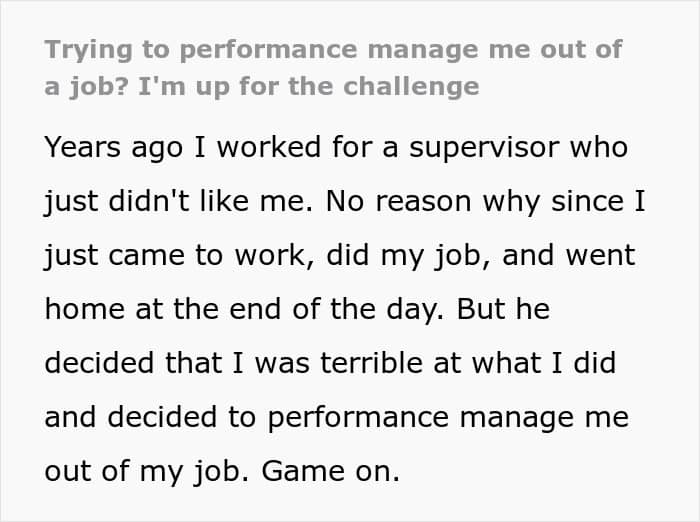
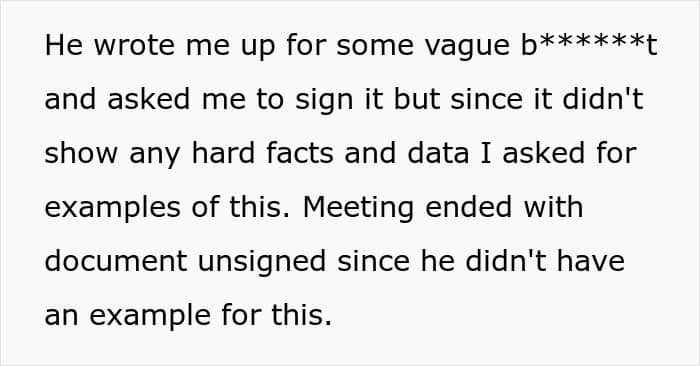

However, they noticed that their boss didn’t like them as they seemed to performance manage them out of the job
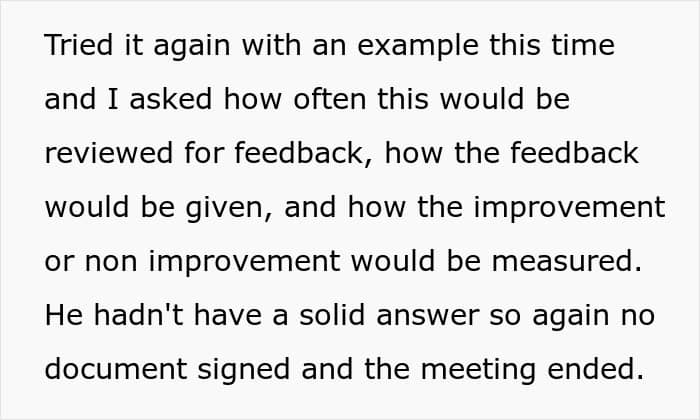
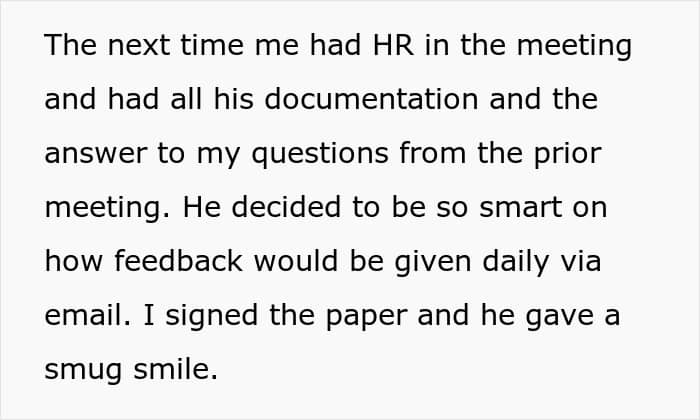
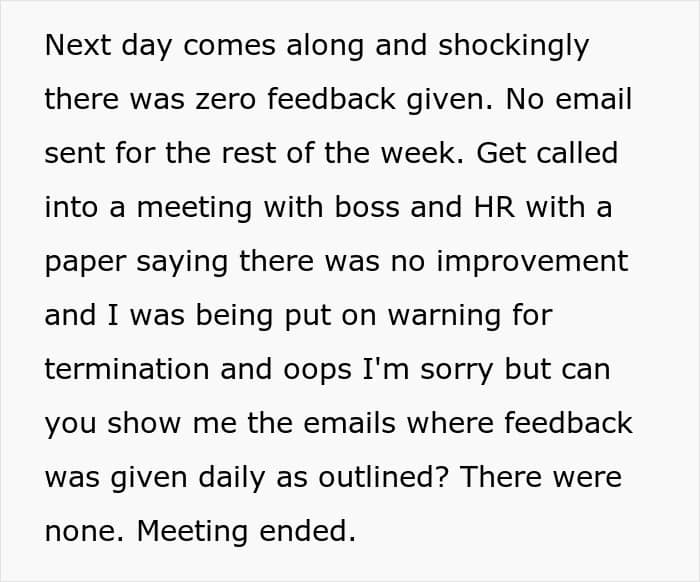

The manager issued a vague write-up, but they refused to sign without specific examples, which the manager couldn’t provide
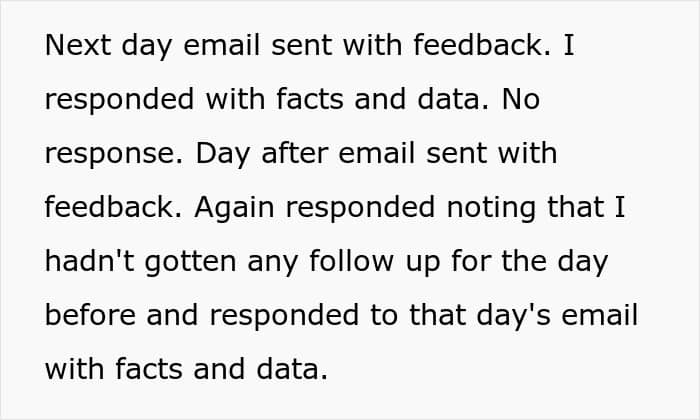
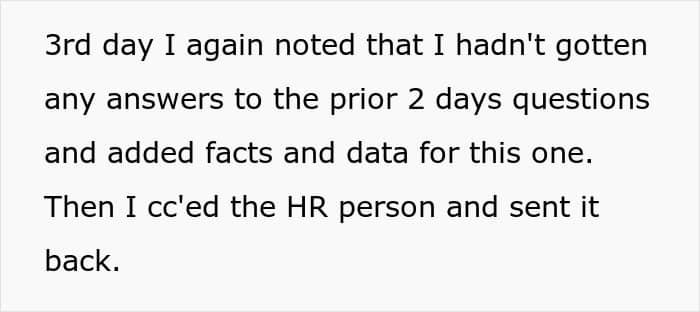
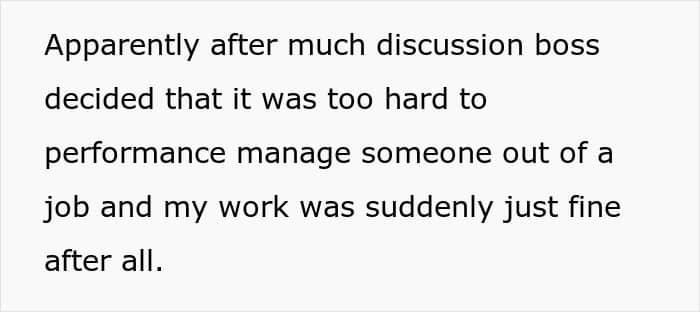
When they calmly demanded specifics, documented everything, and involved HR, the manager’s plan unraveled and ultimately backfired
The OP had done nothing wrong. They clocked in, did their job, clocked out, and lived their best low-drama life. However, that wasn’t enough for their supervisor, who decided to target them anyway. Without any solid reasoning, the boss attempted to push them out, using vague write-ups and performance management tactics.
Naturally, the OP wasn’t about to go down without a polite, policy-driven fight. They refused to sign anything without proper data and examples. The meeting ended awkwardly, with unsigned documents and growing frustration from the manager’s side. By the third attempt, HR was dragged into the picture, and the boss finally came prepared.
His new plan was that feedback would now be delivered daily via email. Smug and confident, the manager got his signature, except he forgot one little detail, which was actually sending the feedback. Days passed, and there were no emails. No feedback. Nothing. When the inevitable termination warning came up, the OP coolly asked about the daily feedback emails.
Realizing the trap had been sprung, the manager scrambled to start sending feedback, now suddenly remembering to send the email. However, the OP responded to each email with factual, data-driven responses, highlighting exactly why the feedback was either off-base or irrelevant. They also kept track of every unanswered email and looped in HR. Eventually, the manager just gave up.
In today’s workplace, employees often find themselves caught in difficult situations where they feel unfairly targeted or pushed out. But what does “performance managing someone out” really mean in HR terms?
To gain some clarity, We spoke with HR expert Dara Faronbi, who explained that this tactic typically involves using performance reviews or a Performance Improvement Plan (PIP) to either encourage an employee to resign or create grounds for their termination.

While it can be a legitimate HR strategy when used properly, aiming to genuinely help the employee improve, Faronbi warned that it can quickly turn unethical if used without valid reasons or due process. “It becomes legally problematic if the goal is to push someone out unfairly,” she explained.
For employees who feel they are being unjustly written up or targeted, knowing the right steps to take can be crucial. According to Faronbi, the first step is to document everything like emails, write-ups, and conversations. “Keep a thorough record,” she advised.
Following that, employees should request clear, written explanations and specific examples of the issues raised. “It’s vital to stay professional, continue performing well, and avoid emotional responses,” she added.
HR’s role is crucial when it comes to balancing support for employees while backing management decisions, and Faronbi explained that HR acts as a neutral facilitator in these situations, ensuring that employees are treated fairly while also guiding managers through proper procedures.
“HR must prevent bias and ensure decisions are legally sound,” she emphasized. Instead of automatically siding with leadership, HR is responsible for upholding policies and ensuring actions are documented and fair, which helps prevent potential legal issues down the road.
Red flags are also something HR keeps an eye on, particularly when a manager might be abusing their power or singling someone out. Faronbi pointed out that HR looks for several key signs in these situations. “Inconsistent treatment of one employee compared to their peers, repeated disciplinary actions without clear cause, and vague or poorly documented concerns are all red flags,” she explained.
Other warning signs include retaliatory actions following complaints, protected activities and patterns of high turnover, or low morale within the team, which can indicate deeper issues with the manager’s behavior.
Netizens applauded the OP for standing up to an unfair boss, with many cheering the use of documentation and policy to flip the situation. Others saw it as a win against workplace bullying as they revealed how common these scenarios are and how malicious compliance can often turn the tables.
What do you think about this situation? If this happened to a colleague of yours, would you speak up or stay out of it? We would love to know your thoughts!
Suddenly, the author’s work was deemed perfectly fine, and netizens applauded them for standing up to the manager
